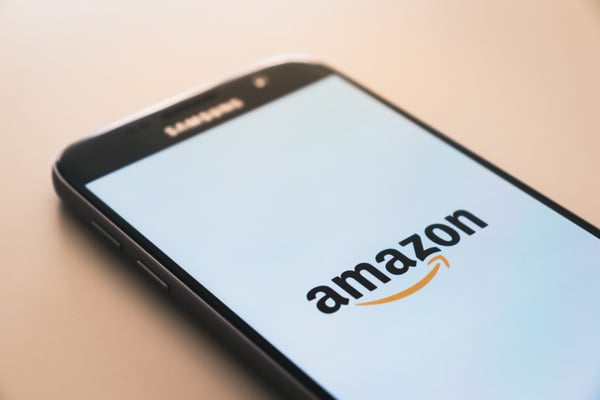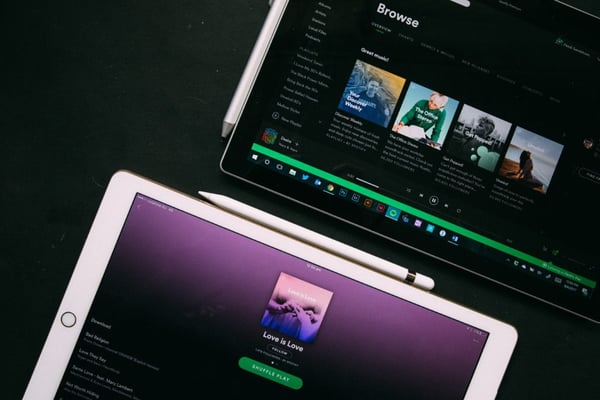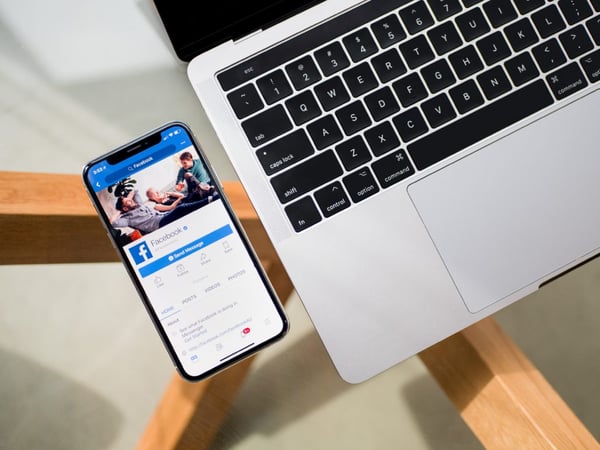Different business models are used for different types of startups.
As a startup business seeking long-term success, it's not enough for you to have a great idea for a product or service. No matter how great an idea is, startups may have difficulty finding success if they have yet to determine how the business will sustain itself in the long run.
As such, you should work on developing a business model that will help you ascertain how your business is going to be run. To create an effective business model, you'll want to identify your customer base, any sources of revenue, financing details, and the products or services that you're going to provide.
Different business models are used for different types of startups. For instance, if your startup is going to be selling a service online, you may want to consider the freemium model, which allows you to provide free and premium tiers for your service. If you plan on selling a subscription for the service that you provide, the subscription model is likely your best option. Once you've made a decision on how you want your company to be financed, what kinds of products you want to sell, and what your customer base is going to be, you'll be able to select the business model that meets your needs.
The seven different business model ideas that will be detailed in the following include the:
Marketplace model
On-demand model
Disintermediation model
Subscription model
Freemium model
Virtual good model
Reseller model
Each of these business models offers many distinct advantages, which is why they have been implemented by such businesses as Amazon, Walmart, Uber, and Hulu.

The marketplace model is a type of business model that allows you to act as the go-between for sellers and buyers. Likely the most popular company to use the marketplace model is Amazon. They only act as the online marketplace that takes care of the transactions between buyers and sellers.
The main advantages of using a marketplace model include the fact that you won't need to store any inventory and that you won't have any overhead costs, which takes away a significant amount of the frustration and expenses that typically come with running a business. Since you don't manufacture a product, you won't need to worry about selling it. Marketplaces will usually take a small percentage of the transaction between the buyer and the seller.
If your business makes use of this model, you will need to provide customers with a reason to use your marketplace. To be successful, you likely shouldn't create a marketplace that's similar to Amazon. You could instead focus on a market that would be receptive to a smaller marketplace. For instance, a startup might want to create an art marketplace where customers can request artwork for logos, branding, and book covers. The artists on the other end could then fulfill these requests. The key is to reach out to a customer base that will be receptive to your idea.

The on-demand model is exactly as it sounds, which means that you will be tasked with providing customers with a service that they can request and obtain any time they please. Uber is a top example of this business model that allows customers to request a ride, after which a driver will pick them up and take them to their destination. Other businesses that use this model handle all kinds of on-demand services for everything from the beauty industry to the laundry and dry cleaning industry. With a service like Postmates, it's possible to order food, groceries, and other items via a mobile phone app. A delivery person for the company will then pick up these items and deliver them to the individual who made the request.
While this business model is similar to a marketplace, it requires more work to be put in by the startup in question. This business model is ideal for startups that are looking to cater to younger demographics that require instant gratification.
Keep in mind that this is a relatively new business model that's becoming more efficient and cost-effective with each passing day. Startups will usually need to leverage existing infrastructures and new forms of technology to provide customers with this kind of business model. Likely the most notable benefit of this model is that it takes use of freelance labor, which helps keep costs down.

The disintermediation model is a standard business model that's used by a wide range of wholesalers, manufacturers, and businesses that offer direct sales. The goal of this model is to get rid of the middleman, which lowers the cost of doing business for the manufacturer. The main benefit of using this business model is that the end-user should be able to pay a much lower cost than they normally would for a product or service.
With a standard retail business model, manufacturers will ship their products to a distributor that will act as the intermediary between the manufacturer and the customer. This intermediary will usually take a cut of the sales, which lessens the amount of money that the manufacturer or producer obtains from the transaction. This business model is ideal for startups that have the necessary resources to produce and distribute goods. The low prices that are possible with this business model should attract new customers.

The subscription model is an increasingly popular business model that involves a company selling a service via a subscription as opposed to a one-off product. This business model is being used by a large number of companies to obtain stable cash flows that are recurrent. The most popular subscription services are Spotify and Netflix, which provide customers with access to music, movies, and TV shows for a monthly or yearly subscription fee.
If you believe that your startup can use the subscription business model, you need to target the customer base that's looking for convenience. Most customers will choose to auto-renew their subscriptions, which ensures that they always have the service that you're providing to them. Because of recurring sales, this model allows you to predict what your yearly revenues are going to be, which is fantastic when you're trying to bring in new investors.

The freemium model is among the more popular business models for startups since it combines free and premium services into one business model via a tiered approach. The free service that you offer to everyone would include basic features of the service. The premium component of this business model allows you to create a premium service that offers more features and perks than the free service. If your startup is centered around web design and development, you could start by offering a free package that includes some basic design services. You could then create a premium package that includes extra features like free hosting, video production, and unlimited design revisions.
These additional features may entice customers to purchase the premium package. When you select this business model, it's important that the free and premium tiers are balanced. While the free tier should offer enough features to be compelling, it's essential that the premium offering is much more appealing to your core audience. With this business model, you'll be able to bring in customers who are interested in trying out your service for free, which allows them to become familiar with the service before upgrading to a premium option.

The virtual good model is commonly used by video game developers but can also apply to a range of other businesses. This type of business model provides customers with the ability to purchase virtual goods, which only exist online. In a video game, these virtual goods could be extra lives or weapon upgrades.
Many companies that create smaller games for smartphones will implement a virtual good store within the game where users can purchase all kinds of online goods. Aside from game developers, creative thinking will be needed to use this business model. A company like Facebook allows users to purchase and send a virtual gift to another user, which has proven to be popular. Since you only need to bandwidth for these virtual goods, the margins are very high.
.jpg?width=600&name=wi9yf7kTQxCNeY72cCY6_Images%20of%20Jenny%20Lace%20Plasticity%20Publish%20(4%20of%2025).jpg)
The reseller model is a business model that's very similar to the marketplace model. When a startup operates as a reseller, they will focus on promoting and selling products that are produced or manufactured by another company or individual. There are a couple of different reseller models that you can use for your startup. With companies like eBay, the products are promoted and sold on their website. Once sold, however, delivery of the product will need to be handled by the individual or company that has listed the item for sale. This type of reseller is able to avoid inventory problems.
You can also benefit from the fact that you won't need as many salespeople, which significantly lessens the costs associated with HR. The most common reseller model is the retailer model, which involves products being held at a store or warehouse by the reseller before being passed on to the customer who buys the product. While retailers hold some inventory in their stores, they only purchase a small amount from the manufacturer or producer at a given time. The primary benefit of this business model is that it's a tried and true method of obtaining a profit.

Each of these business models have different advantages that you can make use of when developing your own startup. For instance, the marketplace business model ensures that you have very little overhead and that you won't need to carry any inventory. These businesses are great because they can be run from wherever you want.
You could choose to purchase an office space or could decide to run the business virtually. The best way to identify which of these business models is right for you is to make sure that the business owner is informed about each type of business model and what the company will need when implementing one of these models.
Once you've found the business model that's right for your startup, you should be able to create a roadmap of growth for your company. With a business model in hand, you can get started on building your business. Creating a startup will usually involve identifying sources of funding, creating a business plan, and making sure that your product or service is market viable. At the beginning, you'll likely find that your budget is low, which could put a damper on growing your business. Likely the best way to navigate this obstacle is by joining an incubator for low-cost access to office space, lab space, and high-end equipment.
If you are developing a medtech or bioscience startup and require access to a laboratory, consider applying today for a space at University Lab Partners, the first wet lab incubator in Orange County! From here, you can complete the work that's necessary for growing your business without needing to spend all of your precious startup resources to do so!
Revised 11/16/2020
Download The Ultimate Guide to Wet Lab Incubators in Southern California, a handbook to assist life science start-ups through the entire decision-making process to find wet lab space.
Download Now